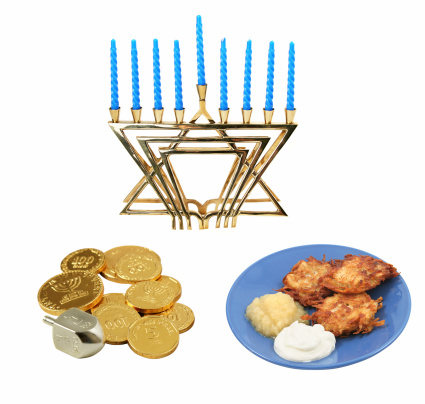The heroism of the Maccabim (Hebrew:גבורת המכבים) is a well known Chanukah story.
We can find the story in the two Books of Maccabees. These books are the only ancient source that provides a full telling of the events that led to the Chanukah victory over the Greeks.
The events that inspired the Chanukah Holiday took place during a particularly turbulent phase of Jewish History. Around 200 B.C. Judea (also known as the Land of Israel) came under the control of Antiochus III, the Seleucid king of Syria, who allowed the Jews who lived there to continue practicing their religion. His son, Antiochus IV Epiphanes, proved less benevolent: Ancient sources recount that he outlawed the Jewish religion and ordered the Jews to worship Greek gods. In 168 B.C. his soldiers descended upon Jerusalem, massacring thousands of people and desecrating the city’s holy Second Temple by erecting an altar to Zeus and sacrificing pigs within its sacred walls.

Led by the Jewish priest Mattathias and his five sons, a large-scale rebellion broke out against Antiochus and the Seleucid monarchy. When Matthathias died in 166 B.C., his son, Judah Maccabee, took the helm and within two years the Jews successfully drove the Syrians out of Jerusalem, relying largely on guerilla warfare tactics.
Judah called his followers in to cleanse the Second Temple, rebuild its altar and light its menorah — the golden candelabrum whose seven branches represented knowledge and creation and were meant to be kept burning every night.
Credit:
history.com







 Available on WhatsApp
Available on WhatsApp
Join the conversation (No comments yet)